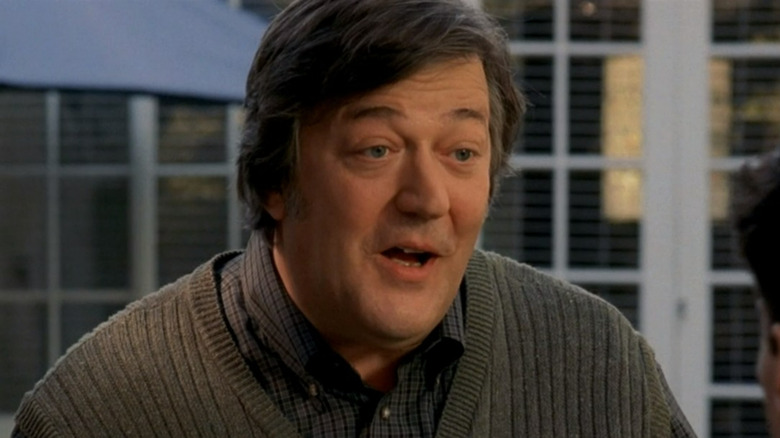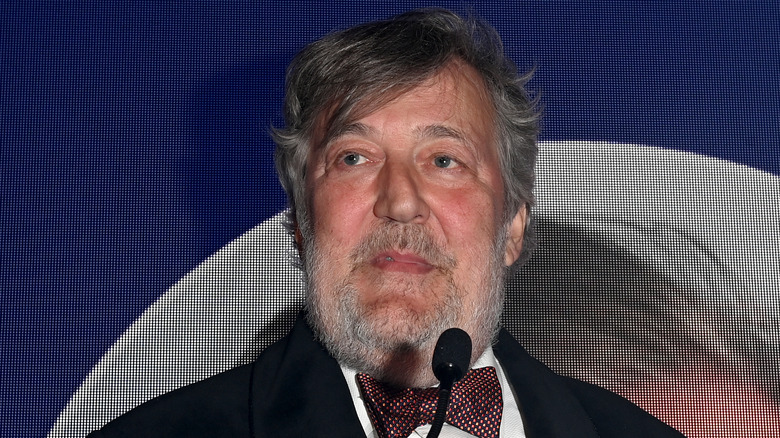Bones Fans Make It Abundantly Clear Who Their Favorite Side Character Is
Quirky crime procedurals are rampant in America. It's as if Hollywood believes that only individuals with snarky personalities can solve the complex mysteries of murder, which hilariously ignores the real-world category of women who crack cases wide open with nothing but a true crime podcast and a morbid fascination with serial killers (this isn't really a joke, by the way. It happens, just ask the Boston Globe). And yet, these televised dramas are often outstanding, even if a bit cliché. Take "Bones" for instance, which followed Dr. Temperance "Bones" Brennan (Emily Deschanel), a forensic anthropologist, as she aids the FBI in solving murder cases.
Bones wasn't the only unique character to appear in her series, though. No, the production was packed with cast of compelling side characters, many of whom didn't get quite the amount of screen time that fans wished they would, and of those characters, it seems that one was missed more dearly than the rest. Here's a brief look at the fan favorite role, and a potentially sobering dive into to why it worked so well.
Everyone loved Dr. Gordon Wyatt aka Booth's first psychiatrist
In a subreddit dedicated to the series, u/cri-bby67 posted a poll, asking, "Who is your favorite underrated side character? I tried to think of some characters that I like that don't get a lot of screen time, to see who other people like!" The poll offered a few characters, such as Avalon Harmonia (Cyndi Lauper) and Hank Booth (Ralph Waite) but the overwhelming consensus was that fans adored Dr. Gordon Wyatt (Stephen Fry).
To put that numerically, out of the 320 total votes that the poll received, 199 went to Dr. Wyatt. Dr. Wyatt — or "Gordon Gordon," as agent Seely Booth (David Boreanaz) affectionately called him – - was a psychiatrist assigned to Booth during the second season of "Bones" to help the agent emotionally cope with a death that wasn't his fault. Dr. Wyatt was so well liked by Booth that word of his excellence travelled to not only Bones but to Angela Montenegro (Michaela Conlin) as well, both of which utilized the psychiatrist's expertise in their own lives. Later on, he appeared briefly in Seasons 4, 5, and 12, gathering exactly six episodes, according to IMDb.
So why, then, if Stephen Fry was so enjoyed in his role, did he only appear in a handful of episodes? It's entirely possible that Fry only appeared as frequently as he did due to his popularity, and that his role was only ever meant for the first plot that he filmed. It's also possible that "Bones" did not wish to adequately differentiate between the roles of a psychiatrist and a psychologist, the latter of which was heavily featured as the job title for Lance Sweets (John Francis Daley) who was a main character.
Stephen Fry has good reason to positively portray a psychiatrist
There's no official answer, but there is a likely set of circumstances which caused Stephen Fry to bring Dr. Wyatt so successfully to life. The actor suffered greatly from undiagnosed bipolar disorder for decades. In an interview with Express, he stated, "[At] the age of 37, I had a diagnosis that explains the massive highs and miserable lows I've lived with all my life. There's no doubt that I do have extremes of mood that are greater than just about anybody else I know. The psychiatrist in the hospital recommended I take a long break. I came here to America and for months I saw a therapist ... my mind was full of questions."
As for an example of what "miserable lows" could look like for Fry, in 1995 he suddenly disappeared while contracted to perform in West End's production of "Cell Mates," an act which both made national headlines and, according to him, saved his life (via Digital Spy). Fry would face further suicidal ideation in 2012 (via BBC). Between and beyond, the actor has been a vocal proponent of destigmatizing mental health issues (via Mind.org), as well as standing up for the rights of other socially oppressed communities (via YouTube). All this to say, Stephen Fry had a depth of powerful reasoning to positively portray a psychiatrist in modern media.
If you or anyone you know is having suicidal thoughts, please call the National Suicide Prevention Lifeline by dialing 988 or by calling 1-800-273-TALK (8255).
If you or someone you know needs help with mental health, please contact the Crisis Text Line by texting HOME to 741741, call the National Alliance on Mental Illness helpline at 1-800-950-NAMI (6264), or visit the National Institute of Mental Health website.


